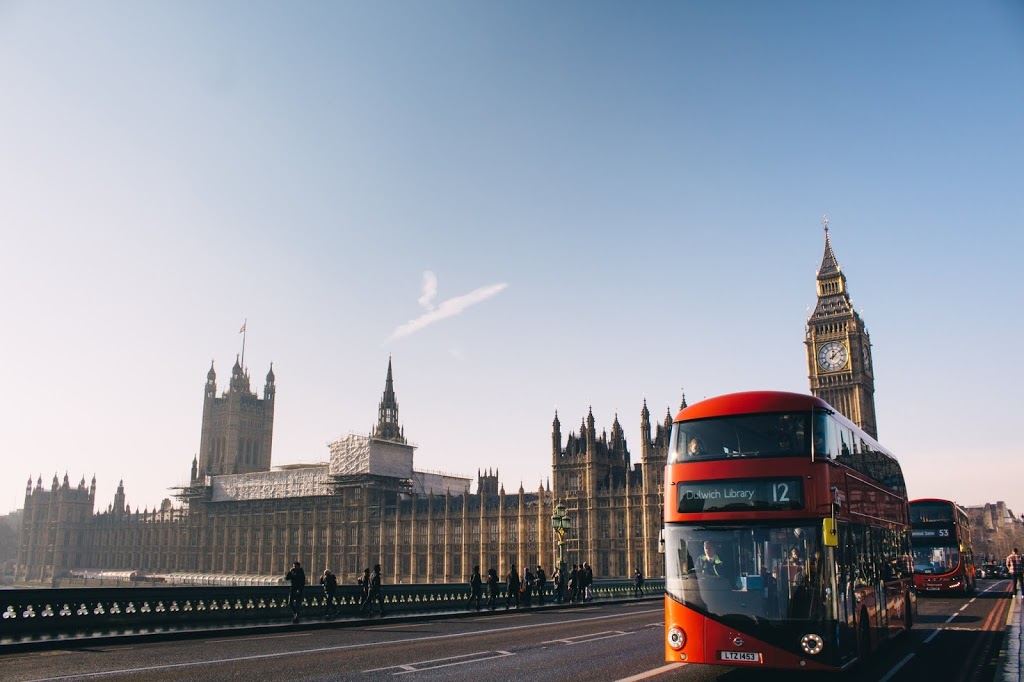Dangerous Heatwaves: How Will Climate Change Affect London by 2050?
- Categories:
- Climate Change

The past few summers in the UK have seen some sensational temperatures, but these heatwaves are indicative of the rising dangers of climate change, and the increasing likelihood of unbearable heatwaves.
With discussions about climate change often centring around melting ice caps and depleting rainforests, it can be difficult to conceptualise the issue on a local scale, such as how climate change will affect London or the UK in general.
London’s climate is predicted to be the same as Istanbul by 2050
One of the ways climate change will affect London is its year-round climate. 2050 is often used as a benchmark year to propose what the earth will look like if we don’t start making significant changes in our practices, behaviour and legislation to turn the tide against climate change.
One such forecast is that, by the year 2050, the climate of London will be the same as the climate of Istanbul today. Leeds could have the climate of modern-day Melbourne and Edinburgh that of Paris. Some people may be excited by the prospect of tropical heat at home in the UK, but one look at any of the recent heatwaves show that the UK does not cope well with such temperatures.
The climate crisis has made heatwaves in the UK 30 times more likely, but we are not prepared
The UK is poorly prepared for the serious effects of climate change such as heatwaves. The Committee on Climate Change stated in June that ‘the UK is poorly prepared for the very serious impacts of climate change, including … overheating’, and Nikolaos Christidis of the Met Office said that events such as heatwaves have ‘detrimental impacts to our transport infrastructure, agricultural catastrophes and water shortages’ and that ‘we need to reduce our vulnerability to these kinds of impacts’.
In addition to these more systematic issues, social problems also cause issues. Outdoor spaces becoming overcrowded used to be quite far down on the list of problems during heatwaves, but with the advent of COVID-19, and the link between climate change and the spread of infectious disease and global pandemics, close proximity during hot weather could now spell disaster. Overcrowding is a problem that has affected London for years, and climate change will only make this worse.
2020 has seen the third hottest day on record in the UK, and the hottest August day for 17 years
As temperatures soar, we are also seeing records being set. Friday the 31st of July 2020 was the third hottest day on record in the UK, (almost 38C at Heathrow), and the 7th of August 2020 was the hottest August day in the UK for 17 years (36.4C at Heathrow). Heathrow often experiences these high temperatures due to the effects of the ‘urban heat island’, where buildings and tarmac absorb more sunlight than open fields, which is a problem that will continue to affect dense, built-up areas in London.
This pattern will only continue until serious changes are made, and many experts believe that a high of 40C in the UK could be a reality every 15 years in a ‘medium emissions scenario’ where some carbon cuts are made (rather than once every few centuries as it is today). However, in a worst-case scenario where the growth of emissions continues as it has, this 40C high could be as often as once every 3 and a half years.
Experts warn this sort of weather poses a serious risk to vulnerable people
We are all aware that heatwaves can be uncomfortable but the effects of extreme heat can be much more deadly. Extreme temperatures led to 3,400 early deaths between 2016-2019, and experts have warned that this weather, especially in southern England, poses a serious risk to vulnerable people and will become more regular as climate change continues.
Ilan Kelman a professor of disasters and health at University College London is one such expert, and he states that ‘without stopping human-caused climate change, these levels of summer heat and humidity will become regular, making it highly dangerous for us to be outdoors and even indoors without continual cooling. Air pollution can also worsen under heat with its knock-on health effects, such as for cancer and asthma’.
We are not unaffected by climate change in the UK
Though it is easy to feel distant from an issue that, when discussed, often centres around the polar ice caps and the Amazon rainforest, the UK is far from unaffected by climate change and tackling the crisis must be a priority. As well as potentially deadly heatwaves and droughts, devastating floods such as those caused by Storm Desmond in 2015 have been linked to global warming.
As a result of climate change, London is experiencing drier summers and wetter winters, with more frequent extreme weather such as heavy rainfall and heatwaves. This will only get worse if we don’t make serious changes to our practices that affect the environment.
One of the easiest ways to support the efforts to stop climate change is to change the search engine you use. SearchScene is our charitable search engine which donates 95% of profits to environmental charities. So, simply by browsing the web as you usually would, you can help support the fight against climate change.










